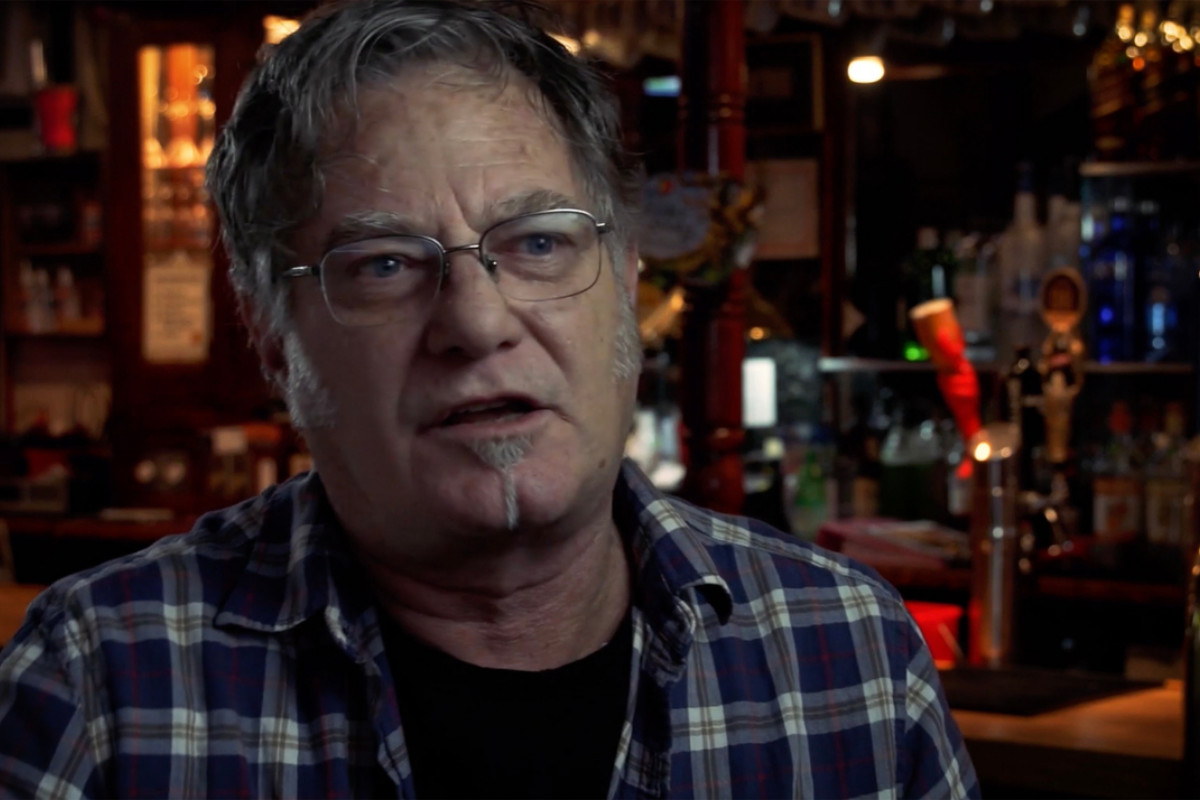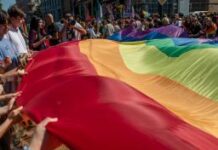
PORTLAND, Maine — Artist and bookbinder Scott Mullenberg remembers the first time he visited a gay bar.
Terrified to be seen going in, Mullenberg circled the block several times, then parked his Ford Maverick a few streets away.
After slipping inside the nearly empty bar, he ordered a Budweiser and sat down at a table, alone.
“I wanted some gay experience,” he said. “I wanted to be touched by a man. I wanted to finally actualize that.”
At the time, gay bars were one of the scant number of safe places for those interested in the same sex to meet each other.
Before he’d sat there long, another man sauntered up to Mullenberg’s table.
“And we had not-so-great, Maverick car sex,” he said, still chuckling with relief, decades later.
Mullenberg recalls his experience in a new short documentary film by local filmmakers Betsy Carson and Wendy Chapkis about Portland’s mostly vanished LGBTQ-friendly watering holes.
Called “Bar Stories from Queer Maine,” the 15-minute piece features dozens of first-person interviews highlighting the bars’ importance in the history of queer culture in Maine — both as safe, accepting refuges and as places of pleasure and enjoyment.
The film, which is currently making the rounds in national and international film festivals, will screen at Speedwell Projects on Forest Avenue in Portland on Friday at 4 p.m. The filmmakers will also be on hand for questions following the screening.
“We’ve gotten into 10 festivals so far,” said Carson, who has a long list of films on her resume.
Her previous credits include a series currently streaming on Amazon called “(I’m Living) A Charmed Life” and a nationally distributed vegan cooking show that aired on public television stations.
Chapkis is a professor of sociology and women and gender studies at the University of Southern Maine.
“Wendy really got the ball going on this with audio recordings,” Carson said.
In 2016, Chapkis began recording oral history accounts of LGBTQ life, activism, commerce and culture in southern Maine as faculty scholar for the university’s Jean Byers Sampson Center for Diversity LGBTQ+ Collection.
“In the midst of the interviews, I heard them talk a lot about all the Portland gay bars that don’t exist anymore,” Chapkis said.
That same year, a man killed 49 people at Pulse, a gay-friendly dance club in Florida. It was also the year before the 50th anniversary of the Stonewall Riots, which sparked the modern gay-rights movement.
Chapkis decided to enlist Carson to help document people’s Portland gay memories before it was too late.
“Whenever you’re part of a marginalized community, your history doesn’t make it into the history books. That’s not acceptable to me” Chapkis said. “Once it disappears, it’s gone, unless we preserve it and then teach it.”
Thus, the documentary is an elegy to vanished Portland LGBTQ bars, including The Unicorn, The Underground, Roland’s Tavern, Just Friends, Sisters and the Backstreet BYOB Club.
“This is where we fomented revolution. This is where we banded together,” said Mike McKenzie, sitting at a bar for his interview in the film. “This is where we built our communities and our chosen families.”
Most of the stories included in the film are upbeat, fond memories, including the time Roger Mayo pushed a shopping cart into the Backstreet Club, announcing he was shopping for a man. It took a while, he remembered, but somebody finally got in, completing the joke.
Another interviewee smiles, remembering one lesbian-friendly bar where women could either play pool or have sex in an upstairs room.
Lena Farrin remembers her first trip to gay-friendly Old Port dance club The Underground.
“I was engaged to be married to a guy,” Farrin said.
She’d already dated other women but only in secret. The Underground was a revelation, proof that she wasn’t alone.
“I saw other people who were normal,” Farrin said. “There’s nothing better than being somewhere where people feel just like you.”
The film also touches on the dangers of just being gay in decades past. In the 1970s, gar bars in Old Orchard Beach and Wells were both torched in suspicious fires. Blackstones, Maine’s only remaining gay bar, had its windows smashed in the 1980s and didn’t replace them for nearly 30 years.
But over the years, as straight Mainers have made strides in accepting their queer neighbors. Blackstone’s now has full-length front windows again and, rendered redundant, the city’s gay bars have all but disappeared.
Chapkis, who remembers hanging out at Sisters back in the day, thinks that’s a shame.
“I miss it,” she said. “There’s a difference between being tolerated and having a genuine, sub-cultural experience.”
Farrin, who had a life-altering experience at The Underground, has some of the last words in the film.
“We got what we wanted,” she said. “We can go anywhere we want — we got what we wanted.”
But immediately after uttering the words, Farrin pauses and frowns, a victory tinged with loss.









